South Africa election: Everyone's a winner
- Published
- comments
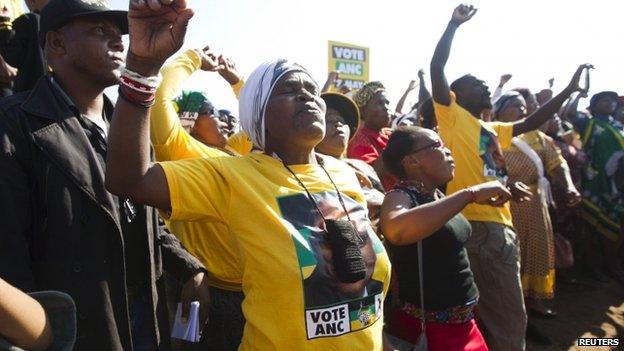
The ANC's commanding victory shows that the public has not lost faith in the party
If you were looking for a political earthquake, you've come to the wrong election.
South Africa marked the 20th anniversary of its hard-won democracy with a ballot that was more about consolidation than seismic shifts.
The governing African National Congress (ANC) lost a few percentage points nationally compared with 2009, but when you consider the bad headlines - from the police shootings in Marikana, to violent service delivery protests, to President Jacob Zuma's alleged corruption, to the government's failure to deliver text books to school children - it is not unreasonable for the party to spin its 62% of the vote as a formidable victory.
The result is proof of the power of incumbency, and of the fact that South Africans have not yet lost faith in the party of liberation.
What the ANC does with its hefty mandate remains a moot point.
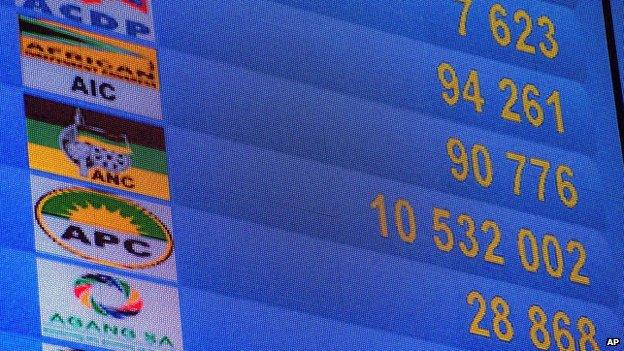
The ruling ANC gained a majority of the vote, far ahead of all opposition groups
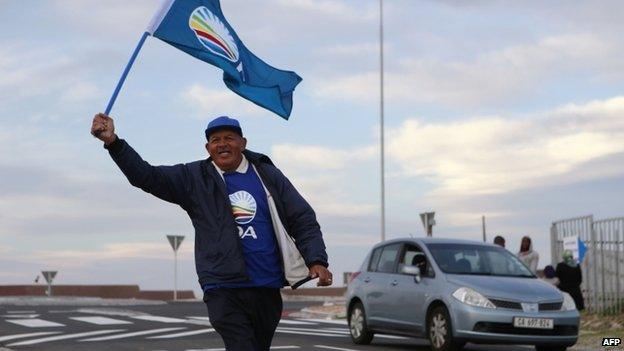
Nevertheless, the Democratic Alliance also increased its share of support
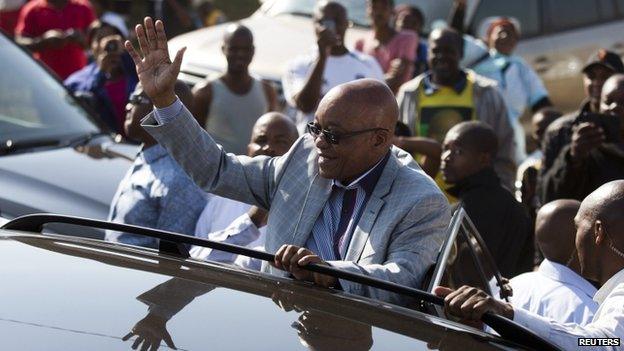
President Zuma will have to decide whether the party should change course
Will it use it, as many foreign investors hope, to forge ahead with its business-friendly National Development Plan against the wishes of the unions?
Or will President Zuma feel he has an excuse to continue with his business-as-usual juggling act - as he tries to balance the demands of union allies, internal rivals and business leaders?
ANC leaders have been queuing up to insist that decisive change is coming.
'New focus'
Meanwhile, the election has already brought a measure of clarity to the country's eclectic opposition - by virtually eradicating a whole range of smaller parties (remember Agang?), and leaving only two with any claim to a national profile.
The Democratic Alliance (DA) is trying to sound enthusiastic about what any other party would consider a resounding success.
The DA's support has jumped by about a third - from 17% to 22% of the vote - but this is a party characterised by a yearning impatience for power and it will be disappointed that it failed to win control of the key province of Gauteng, which includes Johannesburg.
Oddly, the DA appears to have lost votes to a party with which it would appears to have nothing in common - the brash, populist, red-beret-sporting Economic Freedom Fighters (EFF); an indication, perhaps, that many people wanted to make a protest vote against the ANC, rather than put someone else in power.
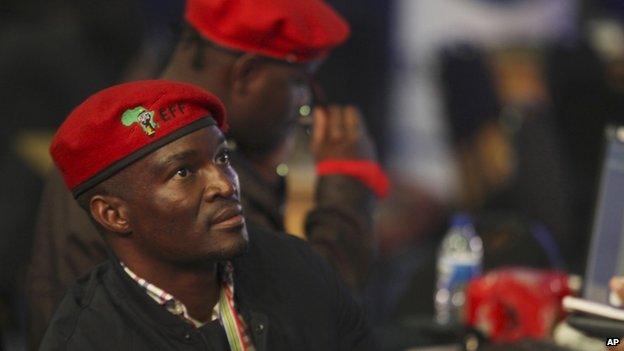
The Economic Freedom Fighters have joined South Africa's new political triumvirate, coming third in the polls
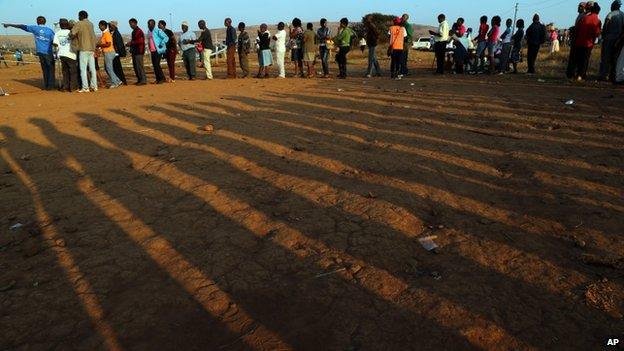
About half of South Africa's population were registered to vote
The EFF's 6% is either a staggering success for a brand new party, or a huge let-down for a group of self-styled revolutionaries who may yet prove to be following a well-worn path of other ANC-breakaway groups who have proved to be flashes-in-the-pan.
Either way, the EFF now joins the ANC and DA as South Africa's new political triumvirate. There will be new challengers in the years ahead - with another workers' party poised to emerge from the fracturing trade union movement. But for now the stripped-down opposition may bring new focus and relevance to South Africa's parliament.
"It'll become a more activist institution, less prone to abuse and intervention. It's good for South Africa," said the DA's parliamentary leader Lindiwe Mazibuko.
Critics have noted the bias in the state media here, and the first signs of real scepticism about the independence of those organising the elections. But in broad terms this election suggests that South Africa's democracy is in robust, abrasive health.
Perhaps this vote will be seen, in retrospect, to mark a turning point, as the last election still dominated by the loyalties and logic of the 1994 vote, with black politics still largely focused on splits and rivalries within the ANC.
In other words, real multi-party politics are starting to become well-embedded here. And the next few years could well see the ANC lose hold of the nation's political narrative as the DA, the EFF, and new left-wing parties challenge the old order.